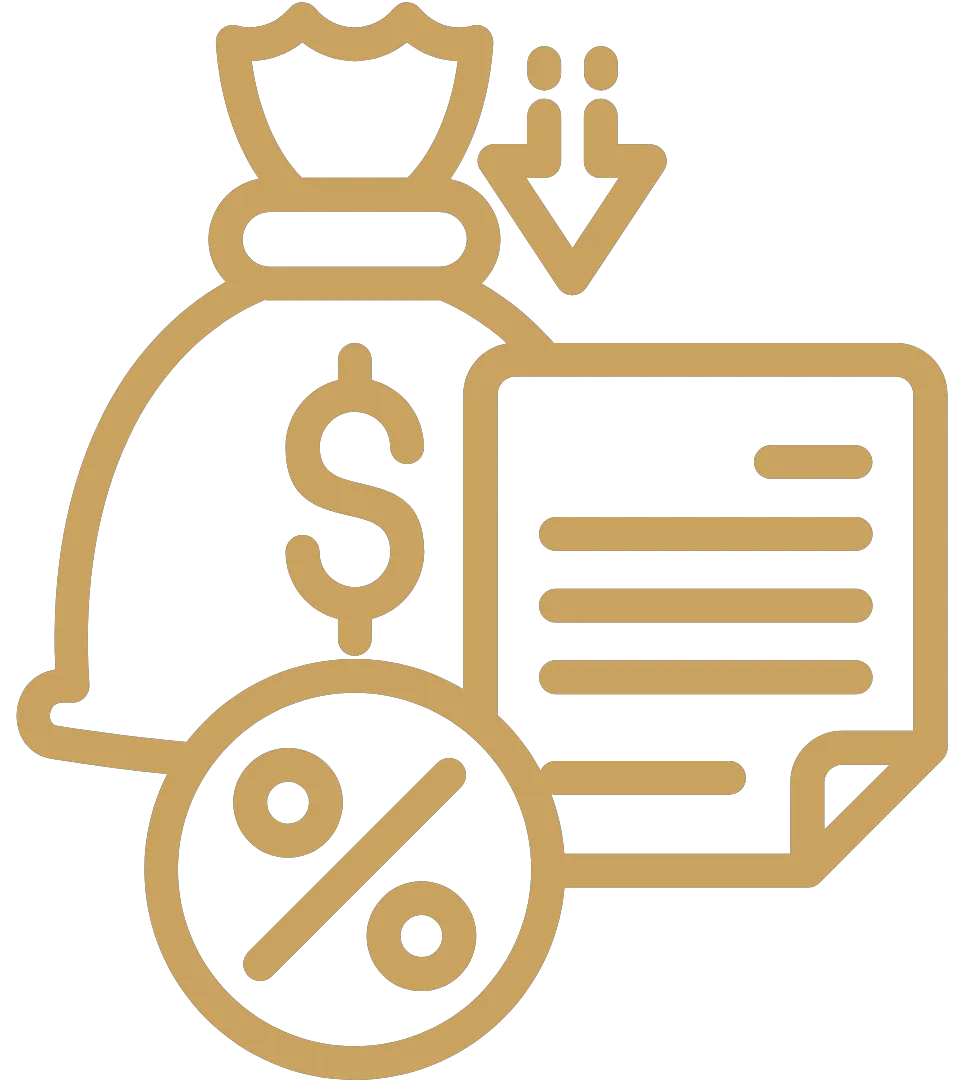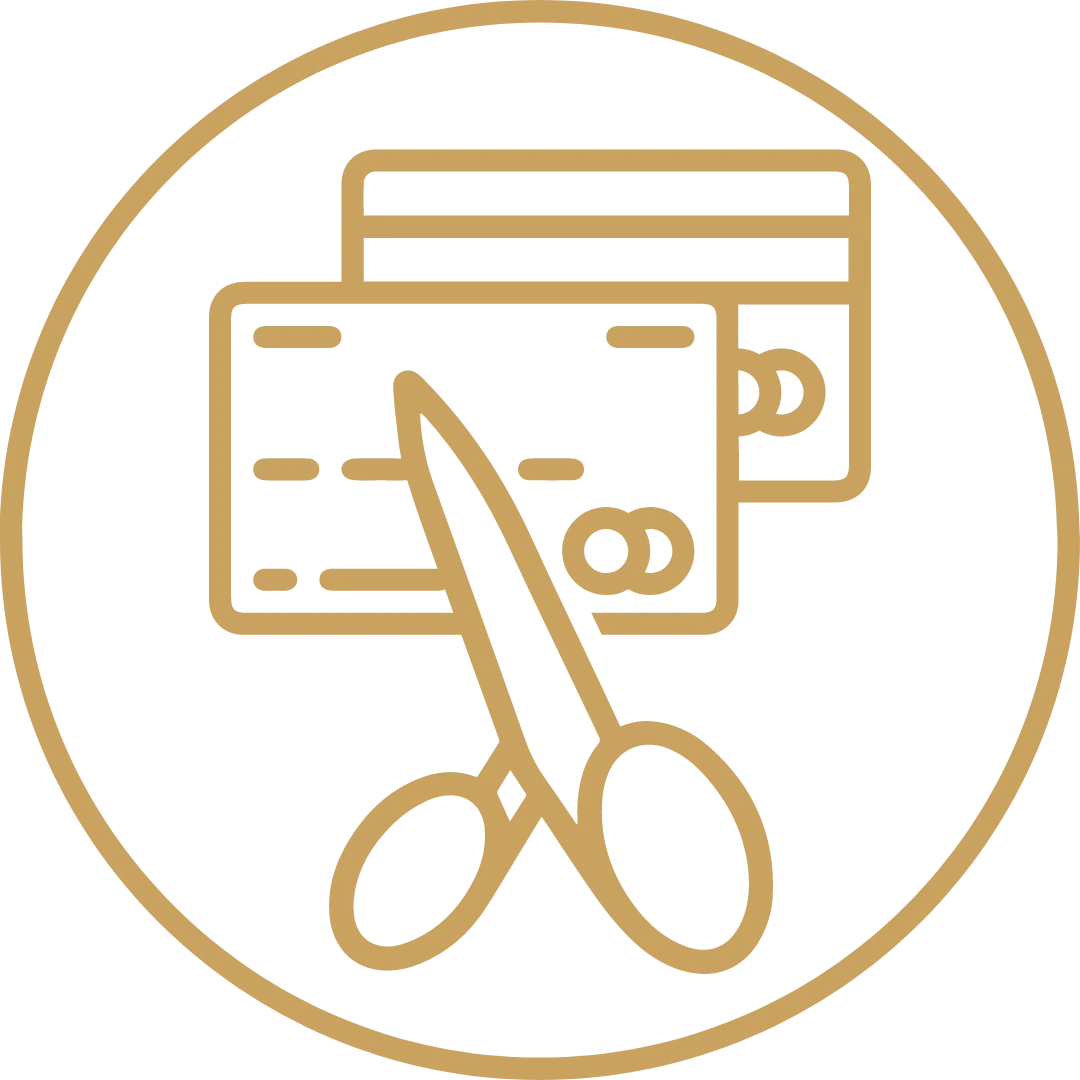Debt Settlement in Nevada
Debt Settlement Experts
Are you drowning in debt and overwhelmed by constant stress? At Second Start Financial, we understand the challenges that come with excessive debt, and we’re here to help. We know that many hardworking Nevadans are struggling to keep up with credit card bills, medical expenses, and other unsecured debts, often due to circumstances beyond their control. That’s why we’re dedicated to providing personalized debt settlement services to help you achieve financial freedom. Our experienced professionals will work with you every step of the way to create a customized plan that fits your unique needs and goals. With our help, you can break free from the burden of debt and start building a brighter financial future.

How Professional Debt Settlement
Nevada Can Help You

Avoid Bankruptcy
Prevent the long-term consequences of bankruptcy by settling your debts instead.

Lower Balances
Negotiate with creditors to reduce your outstanding balances and pay less than you owe.

One Monthly Payment
Simplify your debt repayment process by making a single, affordable monthly payment.

Stop Collections
End harassing calls and letters from collection agencies by enrolling in a debt settlement program.

Tax Benefits
Understand the potential tax advantages of settling your debts for less than the full amount.

Become Debt-Free
Achieve financial freedom faster by resolving your debts through professional debt settlement services.

Our Proven Debt Settlement Process
At Second Start Financial, we follow a proven debt settlement process to help you achieve the best possible results. Here’s what you can expect:
1. Free Consultation: We’ll review your financial situation, explain your options, and determine if debt settlement is right for you.
2. Personalized Plan: We’ll create a customized debt settlement plan based on your unique circumstances, including your debt amount, income, and goals.
3. Dedicated Account: You’ll open a special account and make monthly deposits, which will be used to settle your debts.
4. Expert Negotiations: Our skilled negotiators will work with your creditors to achieve the lowest possible settlement amounts.
5. Debt Resolution: Once a settlement is reached, we’ll facilitate the payment to your creditor and ensure the debt is properly resolved.
BLOG
Our Latest Blogs

Top Causes Of Business Debt
Taking on debt is often a necessity for starting and growing a business. However, debt levels can quickly spiral out of control if entrepreneurs are not careful. Understanding the most prevalent reasons that companies accumulate high debt burdens can help business owners steer clear of dangerous financial pitfalls. When armed with knowledge of the top causes underlying excessive business debt, steps can be taken to avoid these common traps.
Starting and running a successful company requires judicious use of credit to fuel growth at times. Still, there is a fine line between prudent leveraging of debt and destructive overreliance on credit. By examining the prime drivers that push many ventures into spiraling business debt, measures can be implemented early on to preserve solid financial footing, even during inevitable ups and downs.
Poor Cash Flow Management
One of the top causes of ballooning business debt ties back to sloppy cash flow management. Without a clear handle on your income and outflows, it's tough to align spending with actual revenue. The disconnect puts you in a hole fast.
Things like letting accounts receivable lag, overspending on inventory or equipment, and funding growth too aggressively before cash reserves build can knock your finances off-kilter quickly. Before you know it, you've maxed credit lines just trying to cover operating costs.
Getting a solid cash flow system in place early is essential. Regularly review statements, forecast revenue smarter, keep tabs on outstanding invoices, and align operations costs to actual sales. Doing so helps avoid misaligned spending that requires debt to fill gaps.
Read: A Guide to Different Types of Debt
Unexpected Crises
While attainable goals and smart money management are key for any venture, the reality is stuff happens. Recessions, supply chain disruptions, natural disasters, and black swan events can all strike at the worst times.
When crisis hits, companies often have little choice but to take on emergency funding to stay afloat. Whether it's covering revenue shortfalls, rebuilding after disasters, or managing cash flow interruptions, unexpected obstacles frequently force business owners to take on critical debt just to survive market volatility.
While you can't fully predict crises, measures like business continuity planning, emergency lending sources, and insurance buffers can help lessen the debt impact when calamity strikes. Building rainy day funds when possible also helps avoid total reliance on credit during downturns.
Expansion Growing Pains
Ambitious entrepreneurs often fall into debt traps when aggressively expanding too fast. The allure of scaling up quickly drives many founders to overreach operationally long before their revenue justifies it.
Common missteps like taking on too much physical overhead before market fit proves out, hiring faster than income supports, over investing in inventory or equipment on mere speculation, and moving into new regions or offerings prematurely put startups into expansion debt peril fast.
The key is to diligently separate true demand from optimism. Analyze hard revenue data, add physical infrastructure methodically as business materializes, keep staffing lean, and enter new markets carefully via testing before fully diving in. Conservatively aligning growth initiatives to actual sales helps avoid expansion debts that cripple cash reserves.
Personal Misuse of Business Credit
Another top source of business debt ties back to owners directly misusing company credit resources. Whether due to fraud, lack of separation between personal and commercial finance, or sheer lack of discipline, owners themselves are often a business' worst enemy when it comes to unnecessary debts.
Things like tapping credit lines for cars, homes, vacations, and living costs unrelated to operations are all too common. Owners also frequently co-mingle personal and business tax liabilities debts when structure is lacking. Blurred boundaries plus access to easy credit are recipes for misuse disaster.
Maintaining strict separation of company and private financing is critical. Solid corporate formation, accounting delineation, registered business bank accounts, and owner payment norms help avoid the temptation to dip into commercial credit for non-business uses. Clear structure and discipline in how owners utilize business credit is key.
Learn: Establishing Credibility With Credit Score
Poor Accounting Systems
Last but certainly not least, disjointed financial records are often precursors to mystery debts that build slowly over time. When owners lack proper oversight into full accounts payable cycles, various debts can accumulate unnoticed.
Inconsistent vendor payments, unpaid tax balances sliding through cracks, poor inventory management, and just general loose receipts/disbursements visibility provides cover for debts to form largely undetected. By the time owners notice issues, significant liabilities have already mounted.
Early adoption of organized accounting practices is hugely beneficial. Tight AP systems, careful tax payments, solid inventory tracking, crystalline record keeping of all cash outlays, and routine account reconciliation helps identify debts creeping onto the books well before they become urgent threats.
The path to keeping business debt under control starts with understanding key drivers that push companies into excessive liabilities. Avoiding cash flow gaps, planning for crises, pacing expansion prudently, maintaining owner financing separation, and dialing in strong accounting practices are all pivotal for sidestepping unnecessary credit reliance and keeping your venture on solid long-term footing.
Debt FAQ's
What is debt settlement?
Debt settlement is a process where a debtor and creditor agree to settle a debt for less than the full amount owed. This can help the debtor pay off their debt more quickly and affordably than continuing to make minimum payments.
How does debt settlement work?
Our debt settlement program works by negotiating with your creditors to settle your debts for less than the full amount owed. You make regular payments into a savings account, which we use to negotiate with your creditors on your behalf. Once a settlement is reached, you make a one-time payment to settle the debt.
Will debt settlement affect my credit score?
Yes, debt settlement may have a negative impact on your credit score. However, if you’re already struggling with high levels of debt, your credit score may already be affected. Our goal is to help you become debt-free as quickly and affordably as possible, so you can start rebuilding your credit score.
What types of debt can be settled?
Generally, unsecured debts like credit card debt, medical bills, and personal loans can be settled through our debt settlement program. However, certain types of debt like student loans and tax debt cannot be settled through debt settlement
How long does debt settlement take?
The length of the debt settlement process can vary depending on your specific financial situation and the amount of debt you have. However, most of our clients are able to become debt-free in 24-48 months.
TESTIMONIALS
A few years ago, my husband and I enrolled in this program, and it was a lifesaver. It truly helped us out of a difficult situation.
Claire Martinez
I couldn’t have hoped for a better solution to help me with my debt. Second Start Financial has exceeded my expectations and helped me pay off my debt sooner than I anticipated. The approval process was quick and painless, and now I’m on my way to regaining control of my life and improving my creditworthiness. Thank you so much!
Samantha Bailey







At Second Start Financial, we are dedicated to helping you regain control of your life. Our mission is to provide you with effective debt relief solutions that address your unique financial situation.
At Second Start Financial serves the following States only:
Alabama | Alaska | Arizona | Arkansas | California | Colorado | Florida | Georgia | Idaho | Illinois | Indiana | Iowa | Kentucky | Louisiana | Maryland | Massachusetts | Michigan | Mississippi | Missouri | Montana | Nebraska | Nevada | New Jersey | New Mexico | New York | Ohio | Oklahoma | Pennsylvania | South Dakota | Tennessee | Texas | Utah | Virginia | Wisconsin
Disclaimer:
Second Start Financial Inc is not a Broker or Lender. The role of Second Start Financial is to connect potential borrowers with lenders and financial service providers. Second Start Financial does not provide credit offers or solicit lending. The website and its operators solely offer a connection/matching service and are not agents, representatives, or brokers of any lender. They do not make credit decisions and do not charge potential borrowers for any loan or product.












